Annette, the dazzling new film by Leos Carax (Holy Motors), now streaming on Amazon Prime, is about the tumultuous love affair between an edgy, stand-up comedian (Adam Driver) and a renowned opera singer (Marion Cotillard).
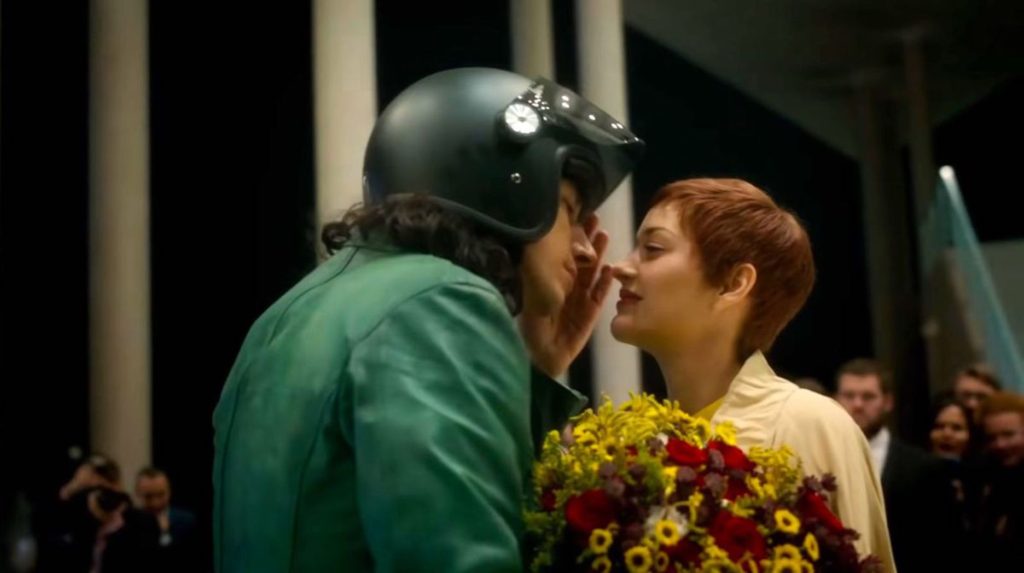
It’s done as a crackpot musical, with the score by the legendary band the Sparks (Ron and Russell Mael), which is sublimely surreal. Then there’s their baby Annette, all done with puppetry that’s bizarre and wonderful. And like Pinocchio, she does morph into a real girl, played with aching brilliance by Devyn McDowell. The movie destroyed me, I loved it so much. And made me realize that it was part of a rarified genre of anti-musicals that I find myself always gravitating towards. Sure, La La Land could fall into that category, but let me mention a few of my favorites and hopefully turn you on to one that will break your brain as much as Annette broke mine.
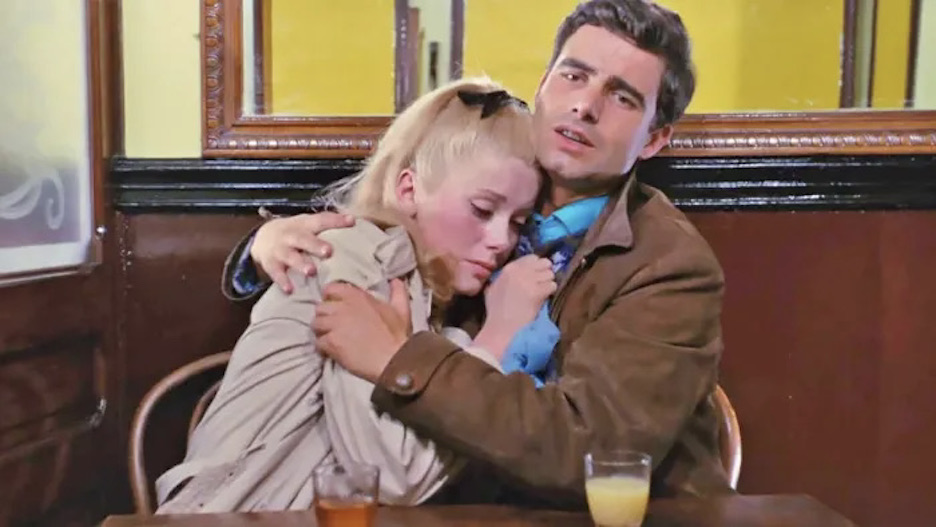
The Umbrellas of Cherbourg (Jacques Demy) It’s hard to realize how radical this glorious 1964 romantic soufflé by Jacques Demy was at the time. It’s about a love affair with a shopgirl- Genevieve (Catherine Denueve) and a mechanic- Guy (Nino Castelnuovo). All the lyrics are sung in the film and the lovely score is by Michel Legrand. The movie is in three sections: The Departure, when Guy is drafted to fight in the Algerian War; The Absence with a pregnant Genevieve who ends up marrying a jeweler when she doesn’t hear from Guy. The third section: The Return is Guy’s reappearance only to find his love married. The colors dazzle, the singing is haunting and lyrical- the movie is a great joy. I remember seeing this in my early 20s and just didn’t care for it. There was this restoration of the film years later and when I saw it again I was in tears I loved it so much. Demy’s follow-up The Young Girls of Rochefort is a magical delight also.
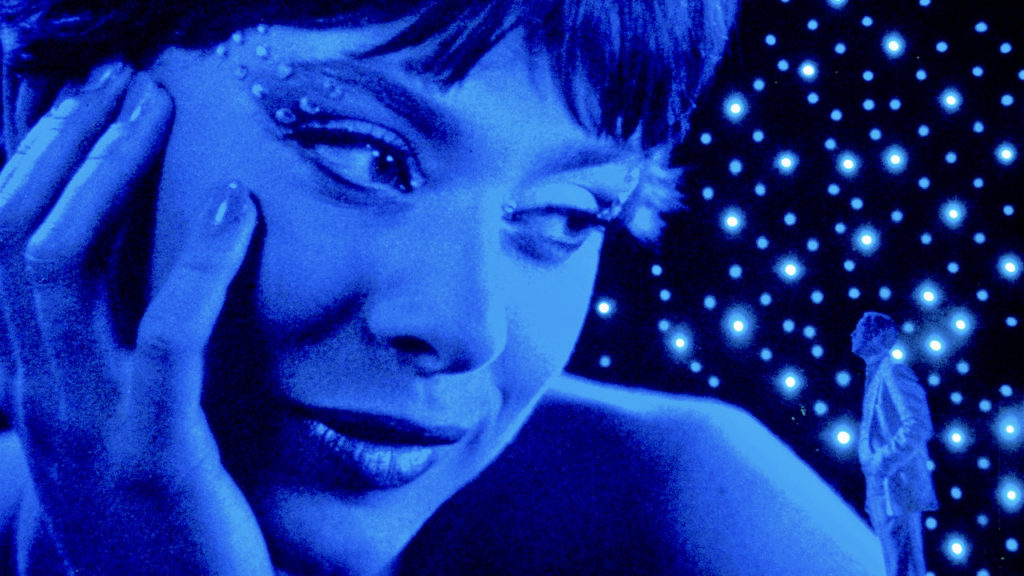
One from the Heart (Francis Ford Coppola) Francis Ford Coppola’s much-maligned “musical,” filmed entirely on the stages of Zoetrope Studios is awash in neon and artificiality. It’s about a couple- Hank (Frederic Forrest) and Frannie (Teri Garr), living and working in Las Vegas, who break up on their 4th of July five-year anniversary. What follows is they both have unexpected romances- Frannie with a piano player (Raul Julia) and Hank with a gorgeous acrobat (Nastassia Kinski)- who slithers in a giant martini glass at a casino. The amazing production design by Dean Tavoularis, using miniatures and elaborate sets, and the luscious cinematography by Vittorio Storaro and Ronald V. Garcia set the stage for this neon-drenched fairy tale. But it’s the music by Tom Waits that seals the deal. That gin-soaked Tom Waits singing voice mixed with the dulcet tones of Crystal Gayle all help create a unique, magical vision.
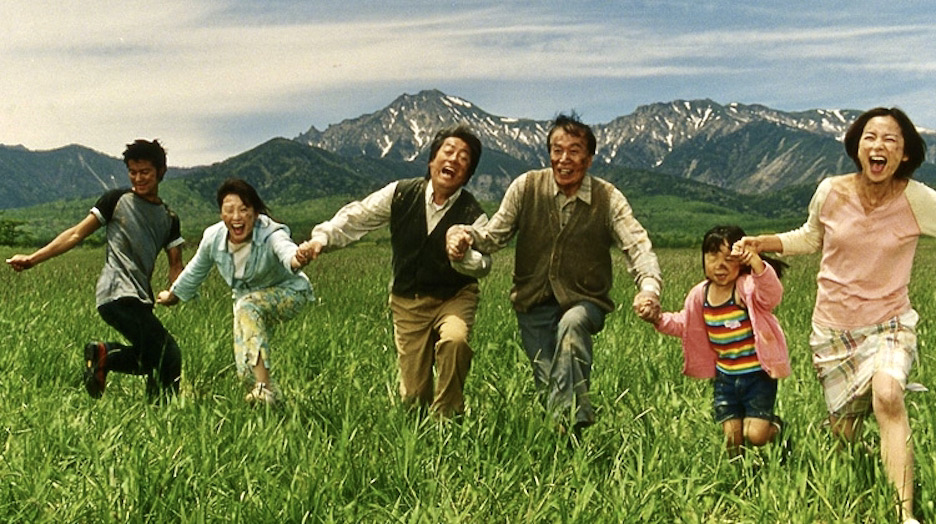
The Happiness of the Katakuris (Takashi Miike) Prolific Japanese director Takashi Miike (Audition) created a hilarious, oddball murder musical in this remake of the Korean black comedy The Quiet Family. It’s about a bed and breakfast on a remote volcanic mountain where unfortunately the guests have a habit of dying unexpectedly. What’s wonderful is how invested you get in this dysfunctional family who just want to make a go of this business only to have to secretly bury corpses out back. Miike mixes Sound of Music musical numbers with claymation to tell the story in this dizzying and surprisingly sentimental film.
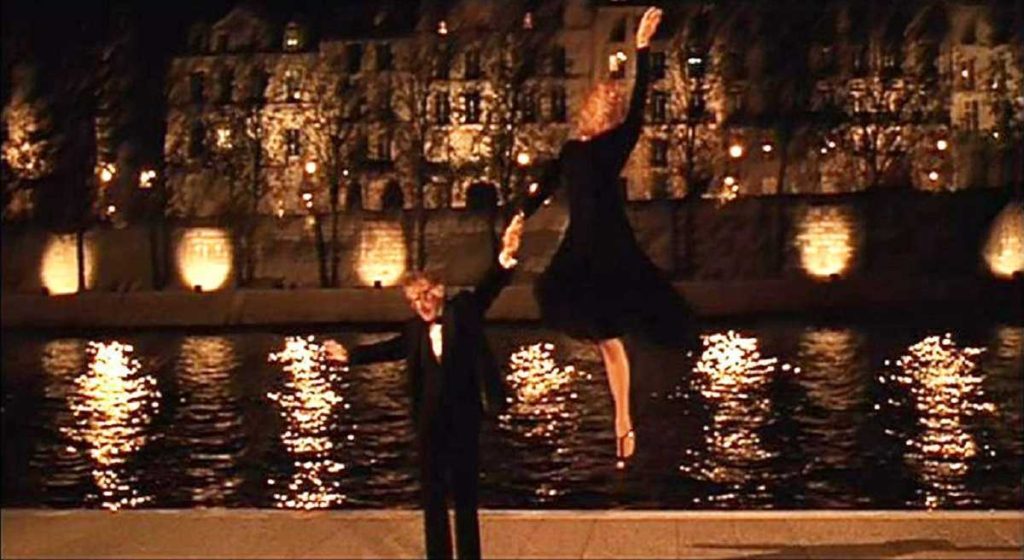
Everyone Says I Love You (Woody Allen). The minute this offbeat Woody Allen film opens with Edward Norton croaking “Just You, Just Me” to Drew Barrymore near the Plaza hotel I was hooked. In fact, the movie is dotted with 30s songs sung by a wild array of wonderful actors, not to mention people on the street, hospital workers and well-heeled customers at Harry Winston jewelers. It’s about the year in the life of a pleasantly neurotic liberal Democrat Park Avenue family. Alan Alda and Goldie Hawn play the parents of precocious daughters and a son (Lukas Haas) who has suddenly and disturbingly become an argumentative conservative. Woody Allen plays Goldie Hawn’s lovelorn ex-husband and they have one of the loveliest scenes at the end in Paris, down by the Seine, where they dance (and levitate) to “I’m Through with Love.” An underappreciated, funny and transcendent film.
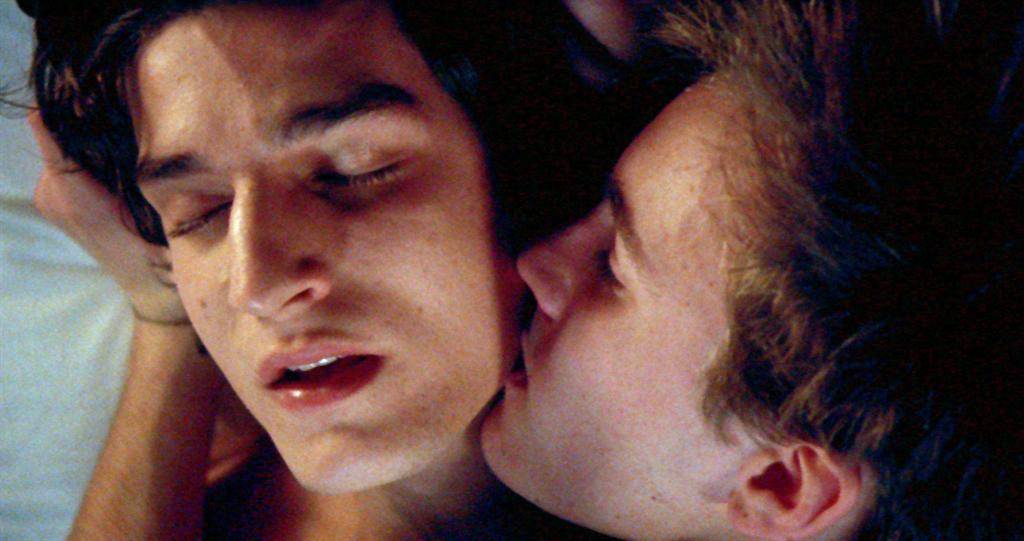
Love Songs (Christophe Honore) French director Christophe Honore (Ma Mere, Dans Paris) guides this bittersweet romantic tale, starring his usual muse Louis Garrel (The Dreamers) as Ismael, about of a prickly menage-a-trois in the face of tragedy, co-starring Ludivine Sagnier and Clotilde Hesme. The film handles love, loss and grief in a surprising way, particularly through Ismael, who periodically breaks into song. Honore evokes such an acid flashback to the 1960s new wave French movies but it still feels new and vibrant and is as wildly romantic as it is inventive.
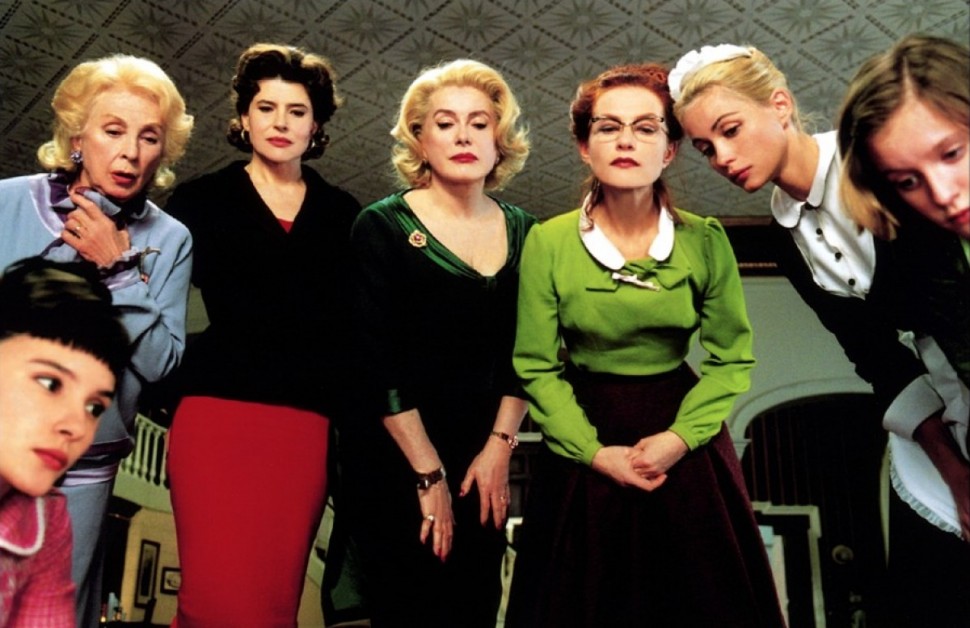
8 Women (Francois Ozon) Francois Ozon’s rapturous riff on Douglas Sirk movies. Eight of France’s most prestigious actresses play a group of women trapped in a snowbound chateau with a murdered man in a bedroom. Secrets and songs spill out of the femmes during the course of 24 hours and just like he did for Rainer Werner Fassbinder’s Water Drops on Burning Rocks, Ozon is able to distinctly retool Sirk’s loony vision. The sight of Catherine Deneuve rolling around on the floor with Fanny Ardant; or Danielle Darrieux bursting into song and getting a liquor bottle smashed over her head, or Emmanuel Beart stripping out of her sexy maid’s uniform; Isabelle Huppert as the spinster aunt descending the stairs in a fur coat, not to mention a deer nibbling at the window is like Sirk-a-go-go.
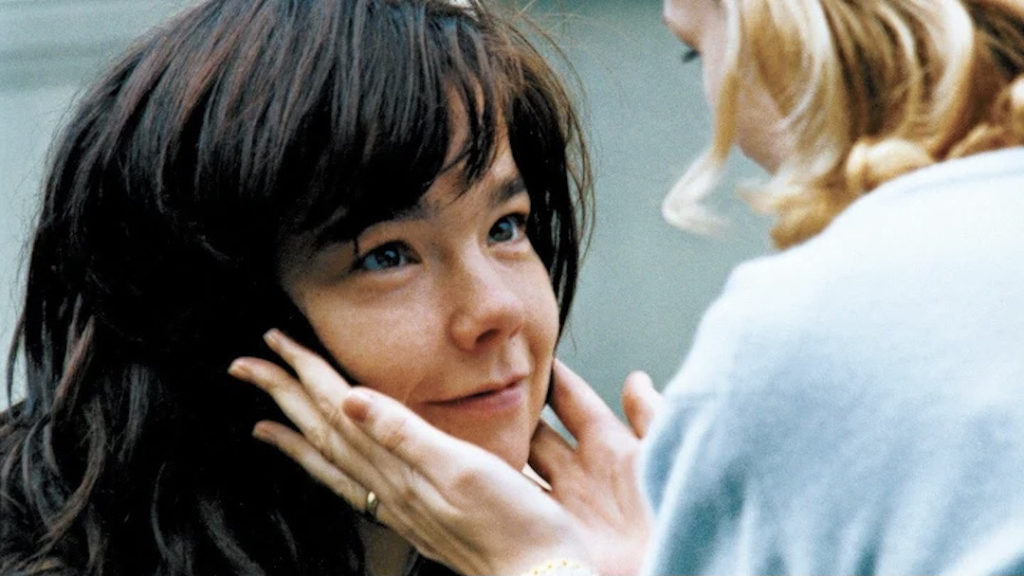
Dancer in the Dark (Lars von Trier) Lars von Trier’s loony, luminous film is part crackpot musical, part shameless melodrama a la Johnny Belinda; Stella Dallas; or Madame X. Icelandic singer Bjork plays Selma, a Czech single mother working in an American factory hiding the fact that she is going blind and frantically saving for her son’s eye operation. Her stubborn single-mindedness in her mission forces her to reject the advances of an ardent suitor (Peter Stormare) and the help of her devoted friend (Catherine Deneuve). Her only escape from the dreary monotony of her life is to imagine herself in the middle of a big splashy musical (numbers written and sung by Bjork). Unfortunately, her neighbor (David Morse) sets into motion a series of tragic events that lands her on trial for murder. Bjork is so radiant as the ultimate “Pitiful Pearl” Selma you can’t take your eyes off her. Especially when von Trier turns the emotional thumbscrews on the audience during the finale.

Tokyo Tribe (Sion Sono) This deliriously demented rap/action film is based on a Manga. Wildman Japanese director Sion Sono (Love Exposure) sets the stage on a massive set representing a futuristic Tokyo ghetto, or, as an elderly female DJ says, “the ass-end of hell.” 23 gangs guard their own turf, but have to unite to fight a common enemy- the fearsome Waru, who are sent out to destroy them all. The daughter of a high priest is captured by the always-snarling, evil Lord Buppa (who keeps a cigar box of dismembered fingers near him to snack on). His decadent son kidnaps young people who become his living furniture. Their henchman is the muscular, blonde-haired Mera, a master of the sword with a cell phone in the shape of a gun. He has a major beef with Kai (mainly over dick-size) and it all ends in an epic gang showdown during the course of one earthquake-filled night. And it’s non-stop rap. A cute boy in a hoodie is the narrator who chants, “Tokyo tribe, never ever die!” You’ll be singing that by the end, too.
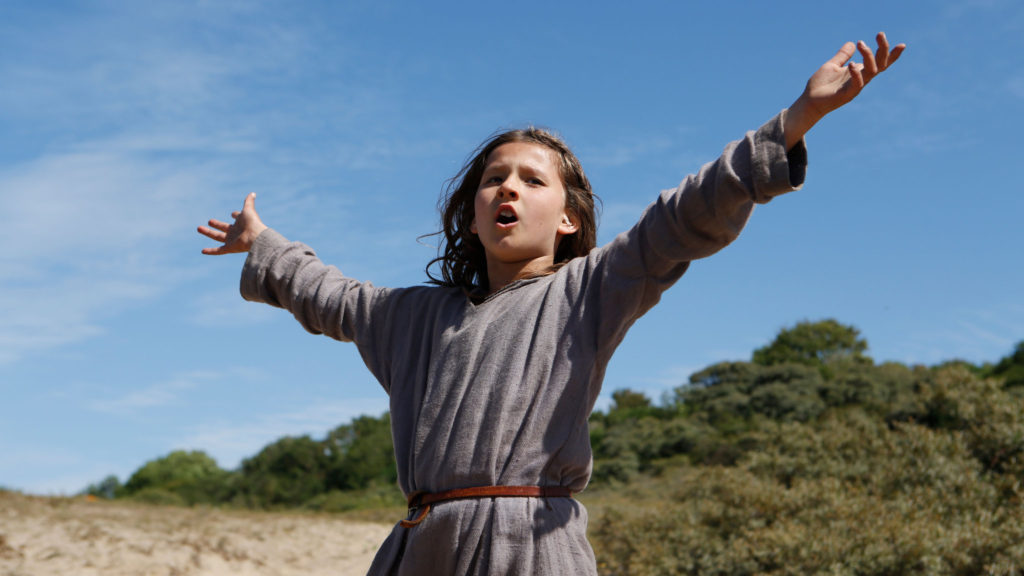
Jeannette: The Childhood of Joan of Arc (Bruno Dumont) Director Bruno Dumont (Humanity) is defiantly iconoclastic. He also likes to use non-professional actors, much like Bresson and Pasolini. Here he tells the story of the young Joan of Arc, as a child in 1425 France, tending her sheep and tormented about the suffering cause by the English soldiers battling in France. She reaches out to a nun (played by twins in habits) who try to placate her. When she hears how French soldiers have held back English troops she believes God has answered her prayers. But days later the invading army has ravaged the land and burned down houses. She is visited by visions of Saints who implore her to rise up and drive the English out of France, but it takes years before she finally leaves home. Before that she does much soul searching- all in song. Yes, everything is sung, and the music is by the French musician IGORRR, fond of using black metal and baroque music. Maybe that explains Jeannette violently shaking her long hair up and down occasionally- headbanging for the Lord, I guess. God knows, this is not for everyone, but there is something rather lovely and wildly eccentric about this movie.
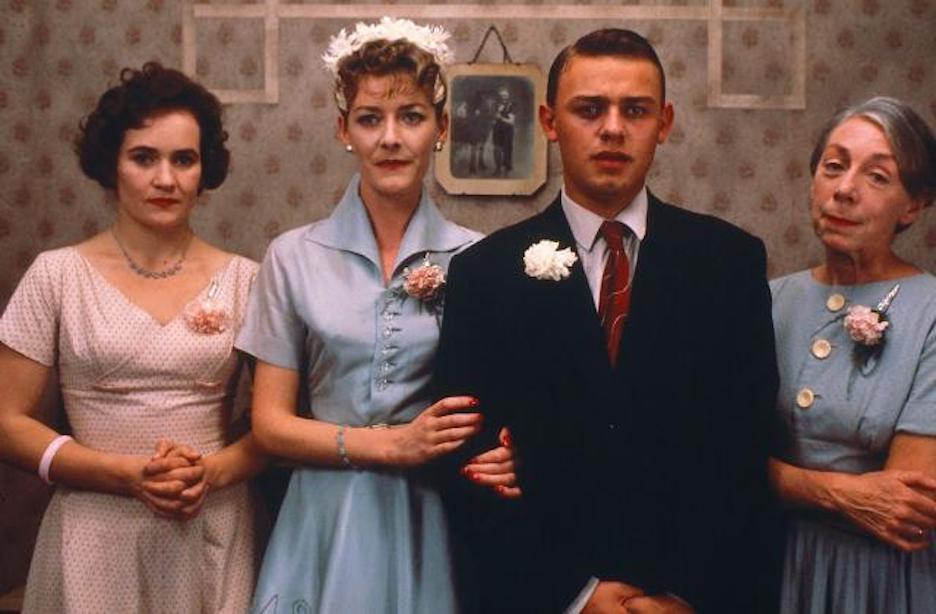
Distant Voices, Still Lives (Terence Davies) One of cinema’s true masterpieces. Director Terence Davies’ 1988 film charts a working-class family in London during, and after, World War II. Memories haunt this house. We see glimpses of their life through funerals, weddings, and other celebrations. The ghosts of brutal fathers (Pete Postlethwaite), and saintly, long-suffering mothers (Freda Dowie) haunt the hallways. But comfort is found in song, when people band together in unison to sing popular tunes. Those moments, in pubs, or at home are exquisitely haunting. A lyrical, heart-rending film that aches with autobiographical poignancy.

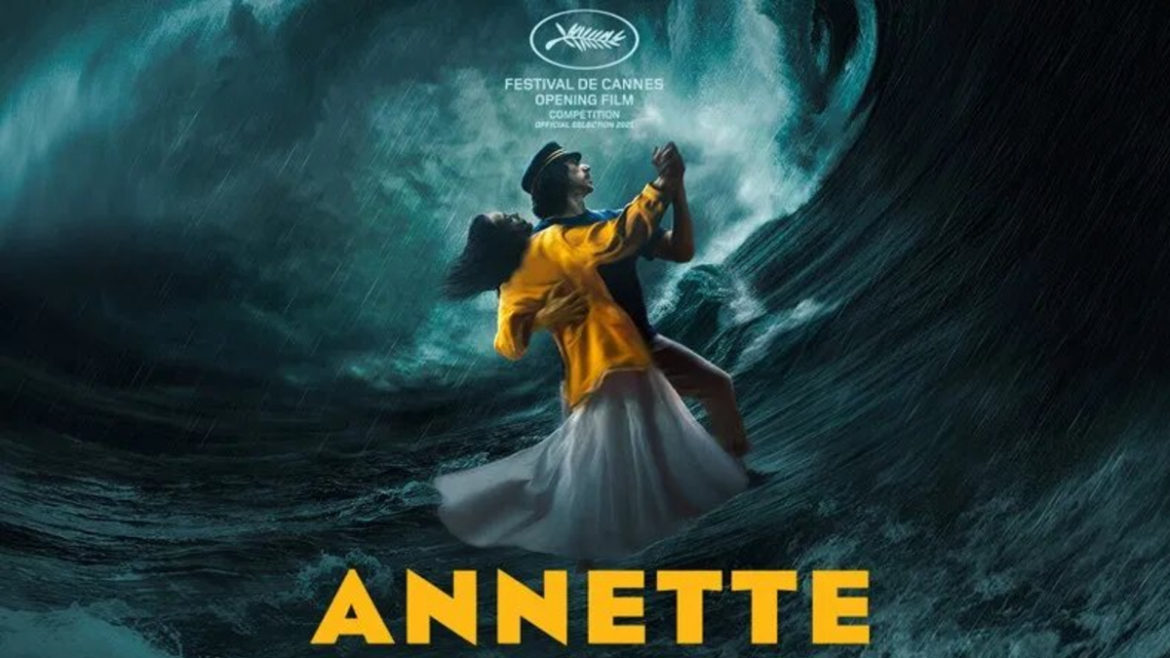
I love this article. It brought back so many memories. Biork, Tom Waits and his “Gin-drenched voice” and now I can’t wait to see Annette. By the way, I believe Michel Legrand wrote Autumn Leaves.